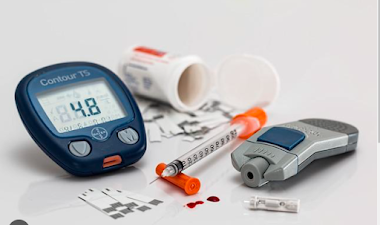Best Diabetologist service
As an AI language model, I don't have access to real-time data or personal experiences, so I can't provide the most up-to-date information on specific medical services or recommend specific healthcare professionals. However, I can offer some general tips on how to find the best diabetologist service:
1. Ask for referrals: Consult with your primary care physician or ask friends, family, or colleagues for recommendations. They may have had positive experiences with a diabetologist.
2. Check credentials: Look for diabetologists who are board-certified in endocrinology or have specialized training in diabetes management.
3. Read reviews: Check online reviews and patient testimonials to gauge the experiences of others who have received care from the diabetologist.
4. Verify experience: Find out how many years the diabetologist has been practicing and their experience in treating patients with diabetes.
5. Hospital affiliations: Consider diabetologists who are affiliated with reputable hospitals or medical centers known for their expertise in diabetes management.
6. Communication and empathy: A good diabetologist should be able to communicate effectively, listen to your concerns, and show empathy towards your health needs.
7. Accessibility and location: Consider the diabetologist's office location and whether it is convenient for you to access.
8. Insurance coverage: Check if the diabetologist's services are covered by your health insurance plan to minimize out-of-pocket expenses.
Once you've narrowed down your options, it's a good idea to schedule a consultation with the diabetologist to discuss your specific needs and see if you feel comfortable with their approach to diabetes management. Remember that the "best" diabetologist for you may vary depending on your unique medical history and preferences, so it's essential to find a healthcare professional who you trust and feel comfortable working with.
Importance of Diabetologist
Diabetologists play a crucial role in the management and care of individuals with diabetes. Here are some reasons highlighting the importance of diabetologists: 1. Expertise in Diabetes Management: Diabetologists are medical specialists who have extensive training and experience in dealing with all aspects of diabetes. They are well-versed in the latest advances in diabetes care, including medications, insulin therapy, lifestyle modifications, and other treatment options. 2. Individualized Treatment Plans: Each person's experience with diabetes is unique, and diabetologists can create personalized treatment plans tailored to the patient's specific needs, medical history, and lifestyle. They take into account factors such as age, weight, activity level, and other medical conditions to develop comprehensive and effective management strategies. 3. Early Detection and Diagnosis: Diabetologists are skilled at recognizing the early signs of diabetes and can diagnose the condition accurately. Early detection is essential as it allows for timely intervention and can help prevent complications. 4. Preventing Complications: Long-term uncontrolled diabetes can lead to severe complications, such as heart disease, kidney damage, nerve damage, and vision problems. Diabetologists focus on preventing and minimizing these complications by helping patients maintain good blood sugar control and managing other risk factors. 5. Education and Empowerment: Diabetologists educate patients about diabetes, its management, and self-care techniques. Empowering individuals with knowledge about their condition helps them make informed decisions and take an active role in managing their health effectively. 6. Monitoring and Adjusting Treatment: Diabetes management is an ongoing process that requires regular monitoring of blood sugar levels and adjustments to treatment plans as needed. Diabetologists work closely with their patients to track progress and modify the treatment regimen to achieve optimal control. 7. Coordinating Care: Diabetes often requires a multidisciplinary approach involving various healthcare professionals. Diabetologists collaborate with other specialists, such as dietitians, ophthalmologists, cardiologists, and podiatrists, to ensure comprehensive care and address all aspects of the disease. 8. Research and Innovation: Diabetologists are often involved in research and clinical trials, contributing to advancements in diabetes treatment and care. Their involvement in research helps keep them updated on the latest developments and best practices. 9. Support and Counseling: Living with diabetes can be challenging emotionally and mentally. Diabetologists provide emotional support and counseling to help patients cope with the condition and its impact on their lives. In summary, diabetologists are essential healthcare professionals who specialize in the management of diabetes. Their expertise, personalized approach, and dedication to patient care are instrumental in helping individuals with diabetes lead healthier and more fulfilling lives while reducing the risk of complications associated with the condition.

Comments
Post a Comment